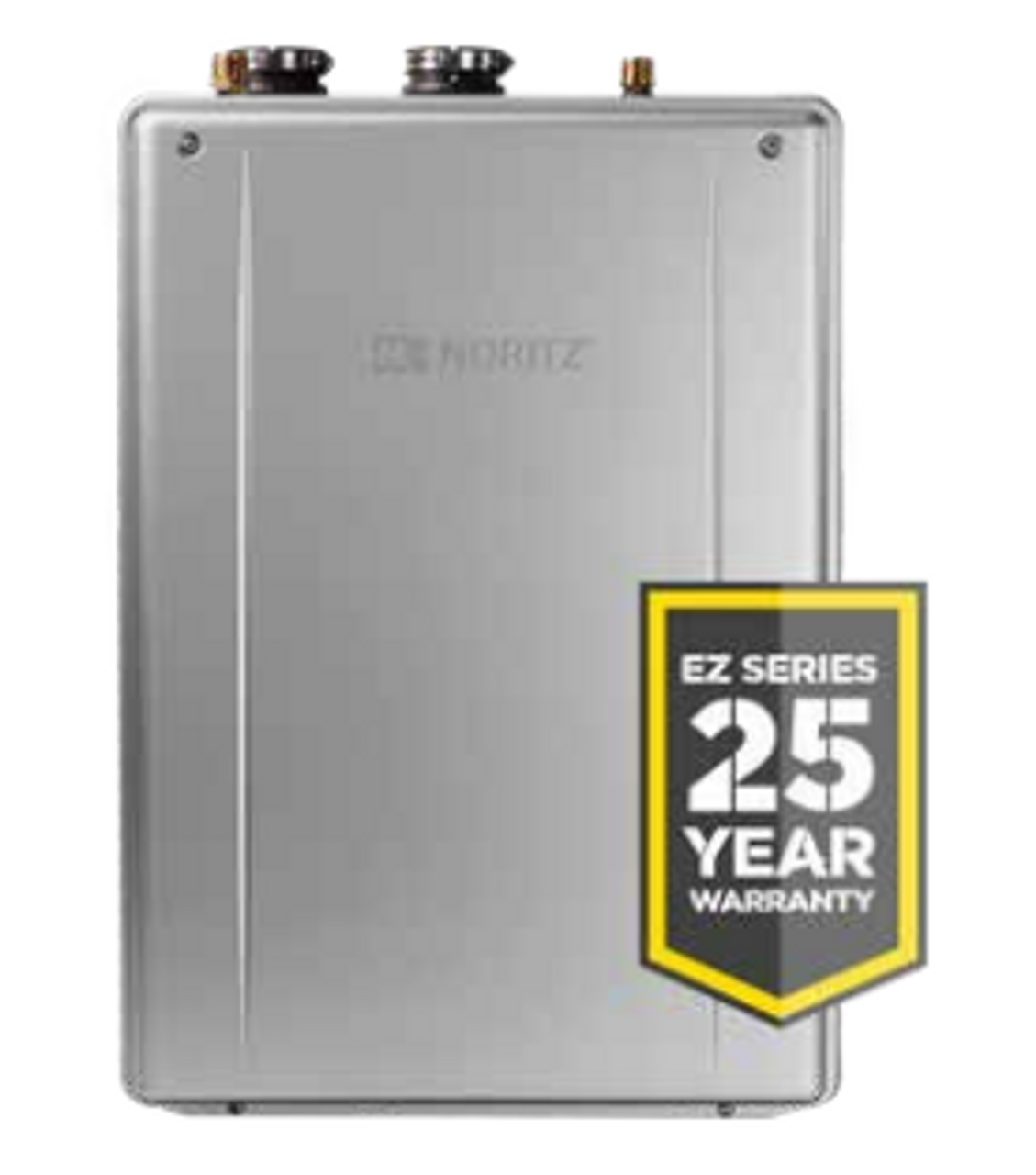Replacing a 75-gallon water heater with a tankless system can save space and energy. Tankless heaters provide hot water on demand, eliminating standby heat loss.
Switching to a tankless water heater offers numerous benefits for homeowners. Unlike traditional heaters, which store hot water in large tanks, tankless models heat water only as needed. This efficiency not only reduces energy costs but also frees up valuable space in your home.
Families can enjoy a continuous supply of hot water without waiting for tanks to refill. Installation may require adjustments to plumbing and electrical systems, but the long-term savings and convenience often outweigh these initial costs. Understanding the specific needs of your household will help determine if this upgrade is the right choice for you.
Page Contents
Introduction To Tankless Water Heaters
Tankless water heaters are becoming more popular due to their many benefits. They heat water on demand, which means no more waiting for a tank to fill up. This technology saves energy and money.
Many homeowners are choosing tankless systems for their space-saving design. Unlike traditional heaters, they take up less room. Installation is easier, too, since they can be mounted on walls.
Some key benefits include:
- Unlimited hot water supply
- Energy efficiency reduces utility bills
- Longer lifespan compared to tank heaters
- Less risk of leaks and water damage
Switching to a tankless system can greatly improve your home’s hot water experience.

Credit: plumbing-deals.com
Comparing Tankless And 75 Gallon Heaters
Tankless water heaters provide endless hot water. They save space compared to a 75-gallon heater. A tankless system can be mounted on walls. This frees up valuable floor space.
Energy efficiency is a big plus. Tankless heaters heat water only when needed. This reduces energy waste and lowers bills. A 75-gallon heater keeps water hot all day, even when not in use.
| Feature | 75 Gallon Heater | Tankless Heater |
|---|---|---|
| Capacity | 75 gallons | On-demand |
| Space | Requires large space | Compact design |
| Energy Efficiency | Less efficient | Highly efficient |
| Cost | Higher energy bills | Lower energy bills |
Assessing Your Household Needs
To replace a 75-gallon water heater with a tankless system, first assess your water usage. Determine how many people live in your home. Calculate the average hot water demand during peak times. This helps in sizing the tankless heater correctly.
Consider the flow rate of showers, faucets, and appliances. A standard shower uses about 2.1 gallons per minute. Washing machines typically use 2.5 gallons per minute. Knowing these rates helps ensure the heater meets your needs.
| Fixture | Flow Rate (GPM) |
|---|---|
| Shower | 2.1 |
| Washing Machine | 2.5 |
| Kitchen Faucet | 1.5 |
| Bathroom Faucet | 1.0 |
Choosing the right size tankless heater is crucial. It should handle your household’s maximum hot water demand.
The Financial Angle
Choosing a tankless water heater can save money over time. The upfront investment may be higher, but the long-term savings are significant. Tankless heaters only heat water when needed. This feature reduces energy costs each month.
Many homeowners find they can recover their costs within a few years. Available rebates from local governments can further lower the initial cost. Some utility companies also offer incentives. These programs help offset the price of a new tankless system.
| Rebate Source | Potential Savings |
|---|---|
| Local Government | $300 – $500 |
| Utility Companies | $100 – $300 |
| Tax Credits | Up to 30% of cost |
Installation Process
Choosing the right professional is crucial for a successful installation. Look for a licensed plumber with experience in tankless systems. Read reviews and check references to find a reliable expert.
Here’s a simple step-by-step guide for switching to a tankless water heater:
| Step | Description |
|---|---|
| 1 | Evaluate your current water heater and its placement. |
| 2 | Select the right tankless model based on your needs. |
| 3 | Schedule an appointment with a qualified professional. |
| 4 | Disconnect the old water heater safely. |
| 5 | Install the new tankless unit following the manufacturer’s instructions. |
| 6 | Test the system to ensure it works properly. |
Proper installation ensures energy efficiency and reliable performance. Enjoy endless hot water with your new system!

Credit: www.reddit.com
Maintenance And Longevity
Routine upkeep of tankless units is simple and important. Regularly check the filters and water supply lines. Cleaning the filters helps maintain efficiency. Descaling the unit prevents mineral buildup. This should be done at least once a year.
Life expectancy for tankless water heaters is longer than traditional units. A tankless unit can last 20 years or more. In contrast, a 75-gallon tank usually lasts about 10-15 years. Choosing a tankless model can lead to significant savings over time.
| Type of Water Heater | Average Lifespan |
|---|---|
| Tankless Water Heater | 20+ years |
| 75-Gallon Tank Water Heater | 10-15 years |
Environmental Impact
Replacing a 75-gallon water heater with a tankless model can significantly lower your carbon footprint. Tankless heaters only heat water when needed. This feature makes them more energy-efficient than traditional systems. Less energy use means fewer greenhouse gas emissions.
Choosing a tankless heater also supports sustainability. They usually last longer than tank models. With a longer lifespan, fewer heaters end up in landfills. This change promotes a healthier environment for everyone.
Some benefits include:
- Lower energy bills
- Endless hot water supply
- Smaller space requirement

Credit: www.reddit.com
Real-life Success Stories
Many users share their positive experiences with tankless water heaters. They enjoy endless hot water and reduced energy bills. One family reported saving up to 30% on their monthly bills. They love the space saved by not having a bulky tank.
Another user mentioned that their home feels more comfortable. No more cold showers during peak hours! They can run multiple faucets without worry.
Before switching, some faced issues with their 75-gallon heaters. They often ran out of hot water. After the switch, they experienced consistent hot water supply.
| User | Before | After |
|---|---|---|
| Family A | Cold showers | Endless hot water |
| Family B | High energy bills | 30% savings |
| Individual C | Bulky tank | Space saved |
Making The Decision
Choosing to replace a 75-gallon water heater with a tankless model can save space and energy. These heaters provide hot water on demand, meaning no waiting for a tank to refill. Think about your hot water needs. Do you have a large family? Do you run multiple appliances at once?
Tankless heaters are often more energy-efficient than traditional models. They can lower your utility bills. Consider the installation costs. A professional can help ensure everything meets local codes.
Make sure to check the flow rate of the tankless unit. It should match your household’s needs. A unit that is too small may not provide enough hot water.
| Benefits | Considerations |
|---|---|
| Space-saving design | Higher initial cost |
| Energy efficiency | Requires professional installation |
| Hot water on demand | May need upgrades to existing plumbing |
Frequently Asked Questions
What Are The Benefits Of Tankless Water Heaters?
Tankless water heaters offer on-demand hot water. They are energy-efficient, as they heat water only when needed. This can lead to significant savings on energy bills. Additionally, they take up less space compared to traditional 75-gallon units, making them ideal for smaller homes.
How Much Does It Cost To Install A Tankless Heater?
The installation cost of a tankless water heater varies. On average, it ranges from $1,000 to $3,000. Factors influencing cost include the unit type, installation complexity, and local labor rates. Investing in a tankless system can lead to long-term savings, offsetting initial installation expenses.
How Long Do Tankless Water Heaters Last?
Tankless water heaters generally last longer than traditional models. With proper maintenance, they can last up to 20 years. This longevity is due to fewer issues like rust and corrosion. Regular descaling and flushing will enhance their lifespan and efficiency.
Can I Replace A 75-gallon Heater With Tankless?
Yes, you can replace a 75-gallon water heater with a tankless system. However, it’s essential to choose a unit with adequate flow rate. A professional assessment will help determine the right size for your household needs. This ensures you have enough hot water during peak usage times.
Conclusion
Switching from a 75-gallon water heater to a tankless system offers numerous benefits. You’ll enjoy endless hot water, improved energy efficiency, and reduced utility bills. This upgrade not only saves space but also enhances your home’s value. Consider making the switch today for a more sustainable and convenient solution.
